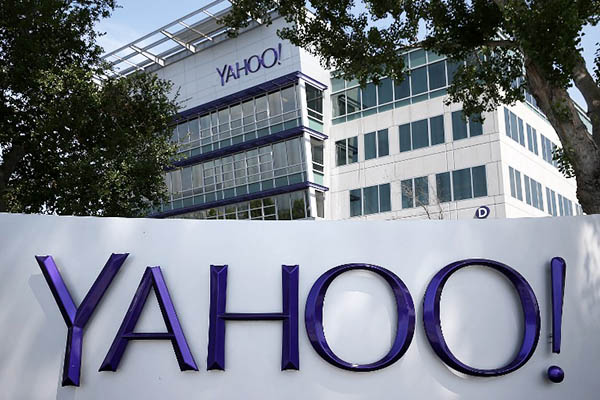
Justin Sullivan—AFP
Disclosure of two-year-old hack will impact consumer confidence and could hamper sale price, say analysts.
A huge Yahoo hack deals a fresh blow to the Internet pioneer, which has been struggling to reinvent itself, potentially impacting a pending sale aiming at giving it a new start.
The hack in late 2014 affecting some 500 million users worldwide, disclosed this week, could further erode confidence in the online giant, which has been on a downward trajectory for some 15 years, analysts said on Friday. “It’s a massive black eye for Yahoo and its brand,” said Patrick Moorhead, an analyst and consultant at Moor Insights & Strategy. “Yahoo still has a lot of customers, and they should feel that Yahoo violated their trust. When it comes to online services, trust is a huge issue, and Yahoo has to worry about losing customers.”
The disclosure is almost certain to impact a pending $4.8 billion deal to sell Yahoo’s key Internet assets to telecom group Verizon—already a massive letdown for a company worth $125 billion at the height of the dot-com boom—which could help revive the Yahoo brand, Moorhead said.
“Verizon has got to be livid about this,” Moorhead said. “But they’re not going to talk about this publicly because it would pour gasoline on the fire.”
The analyst said he expected the sale to go through “but I would expect the price to go down five to 10 percent” following the disclosure.
In the mid-1990s, Yahoo was among the most popular destinations on the Internet, helping many people navigate the emerging web. It became the top online portal, connecting users to news, music and other content. But its fortunes started to fade when Google began to dominate with its powerful search engine.
After a series of management changes and revival efforts, Yahoo decided to sell its main operating business as a way to separate that from its more valuable stake in Chinese online giant Alibaba.
Roger Kay of Endpoint Technologies Associates said Verizon was effectively blindsided by the news of the hack, and may think twice about proceeding with the deal, given the liabilities it may inherit. “Yahoo hasn’t hit bottom, which is disturbing,” Kay said. “And if I were Verizon I would be disturbed because it’s a decaying asset. It’s declining even before I get my hands on it.”
Pace University market professor Larry Chiagouris said the news could drive people away from Yahoo, hurting its advertising base, noting that “10 to 20 percent of its existing email subscribers have been contemplating moving over to Gmail or some other platform.”
“The hacking will only accelerate the loss of the subscribers and ultimately translate into a loss of advertising revenue,” he said.
Yahoo said it was working closely with law enforcement on the breach, which is likely the largest-ever hack of a single organization and included names, email addresses, birth dates, and scrambled passwords, along with encrypted or unencrypted security questions and answers. Yahoo, which said the attack was probably from a “state-sponsored actor,” is likely to be pressed on why it took nearly two years to discover and report the attack, a fact which could prompt inquiries in Congress.
U.S. Senator Mark Warner said in a statement he was “most troubled by news that this breach occurred in 2014, and yet the public is only learning details of it today.”
Moorhead said the news is embarrassing for Yahoo whether or not the company failed to discover the breach in a timely manner. “Either they knew about it and didn’t say anything,” he said, which could open up Yahoo to questions of hiding information. “If they didn’t know about it, then they have a forensics issue.”
Scott Galloway, a professor of marketing at New York University’s Stern School of Business, said the hack would be damaging for Yahoo and for chief executive Marissa Mayer, who took over in 2012 in a bid to engineer a turnaround.
“Like most scandals, it’s not the act but the attempt to cover it up that does the real damage,” Galloway said. “The lag in discovery and disclosure gives the situation the stench of a cover-up.”
Although the public has become accustomed to news about data breaches, this news may erode confidence in the online ecosystem, according to Galloway. “The hacks are more damaging to the ecosystem than individual companies,” he said. “Ms. Mayer’s obscene compensation and the hack give people the sense the game is rigged and that they can trust no platform.”
At the time the deal with Verizon was announced, Mayer’s compensation during her tenure stood at $219 million in cash, stock and options, according to Equilar, a company that monitors executive pay. That includes a severance package of $55 million if she is removed within a year of a change of control in the Verizon deal.
